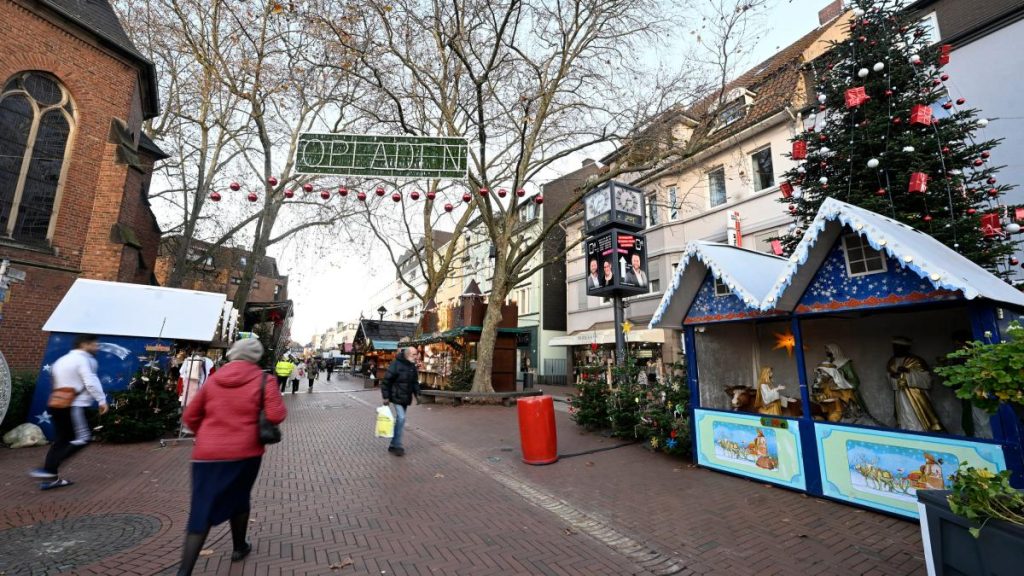A 15-year-old teenager has been charged with allegedly planning a terrorist attack at a Christmas market in Leverkusen, Germany. According to prosecutors, the motive behind the planned attack was Islamist extremism, with the intended targets being “infidels.” The teenager faces a potential sentence of up to ten years in juvenile detention.
The suspect was arrested in November of last year after allegedly announcing his plans for an Islamist-motivated attack in a video. The General Prosecutor’s Office in Dusseldorf accuses him of planning the attack against perceived unbelievers. The teenager, who hails from the Rheinisch-Bergische district, is said to have sent the video to a chat group, where he referred to the potential victims as “infidels.” The plans became more concrete when he and another suspect, who resides in Brandenburg, allegedly selected a Christmas market in Leverkusen’s Opladen district as the target.
The planned attack involved detonating a small van filled with gas canisters at the Christmas market, with the intent to cause harm. The charge brought against the suspects is conspiracy to commit murder. The approval of the charges will be determined by the Youth Chamber of the Cologne District Court. The 15-year-old is currently in custody and could face up to ten years in juvenile detention if convicted. The other suspect, who was also a teenager at the time of the planning, was apprehended by security authorities in the Ostprignitz-Ruppin district of Brandenburg.
The coordinated effort between security agencies in apprehending the suspects highlights the importance of vigilance and proactive measures in preventing terrorist attacks. The case serves as a reminder of the ongoing threat posed by extremist ideologies and the need for continued diligence in monitoring and addressing radicalization among youth. The severity of the charges underscores the seriousness of the allegations and the potential consequences of engaging in terrorist activities, particularly among young individuals who may be influenced by extremist propaganda.
The prosecution’s focus on the Islamophobic nature of the planned attack sheds light on the prevalence of religiously motivated extremism in contemporary society. The targeting of a Christmas market, a symbol of Western culture and tradition, further emphasizes the ideological motivations behind the plot. The case raises concerns about the radicalization of young individuals and the susceptibility of youth to extremist ideologies, highlighting the importance of early intervention and counter-radicalization efforts in preventing acts of terrorism.
The legal proceedings against the suspects will serve as a test of the German judicial system’s ability to address and combat terrorism effectively. The charges brought against the teenagers demonstrate the severity with which authorities are treating the case, underscoring the gravity of the alleged plot and the need for swift and decisive action in prosecuting individuals involved in terrorist activities. The outcome of the trial will have broader implications for counterterrorism efforts in Germany and the wider European context, as authorities continue to grapple with the persistent threat of extremist violence in the region.


